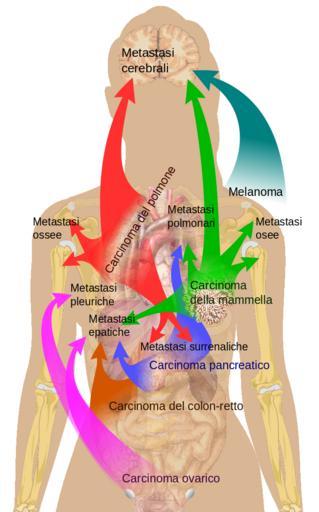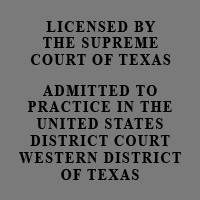Ovarian Cancer Health Risk: Tainted Talcum Powder Products Made from Talc with Asbestos Fibers Cause An Increased Risk of Ovarian Cancer and May Be The Cause of Ovarian Cancer In Thousand of Women By Tainted Talcum Powder Products Ovarian Cancer Lawyer Jason S. Coomer
It is common for many women to use a form of talcum powder for their daily hygiene. Unbeknownst to these women, many forms of talcum powder sold in the United States contained talcum powder tainted with asbestos fibers. For women who used these products and later developed cancer, it is devastating. More specifically, these woman and their families commonly want answers regarding why asbestos tainted talc was used in products designed for women and babies. More specifically, how could talcum manufacturers intentionally market tainted talcum powder that can cause ovarian cancer to women. Many of these questions are being asked in trials against talcum powder manufacturers.

Women who have developed ovarian cancer and have used talcum powder products as well as families who have lost a loved one that has been diagnosed with ovarian cancer and have used talcum powder products are now filing talcum powder ovarian cancer lawsuits. For more information regarding a potential talcum powder ovarian cancer lawsuit, please feel free to send an e-mail message to Ovarian Cancer Lawyer Jason Coomer or use our online form for a free case evaluation.
Talcum Powder Tainted with Asbestos Fibers Causes An Increased Risk of Ovarian Cancer
Talcum Powder Ovarian Cancer Lawyer Jason S. Coomer discusses how recent scientific studies have shown that women who use talcum powder may have an increased risk of developing ovarian cancer. If you have been using talcum powder and have been diagnosed with Ovarian Cancer, it is important to discuss your use of talcum powder with your medical doctor. Further, it is important that you discuss early detection of ovarian cancer with you medical providers. If you have lost a loved one from ovarian cancer, who your believe was using talcum powder, it is important to obtain the pathology regarding the ovarian cancer to determine if the talcum powder was a cause of the ovarian cancer and if so report the adverse action to the FDA.
Ovarian Cancer Can Be Difficult To Detect Through Early and Late Stages
Ovarian cancer is a cancer that forms in an ovary. It results in abnormal cells that have the ability to invade or spread to other parts of the body. When this process begins, there may be no or only vague symptoms. Like many types of cancer, early detection of ovarian cancer is important. However, early-stage ovarian cancer rarely causes any symptoms and can be extremely difficult to detect. Early symptoms may include bloating, pelvic pain, abdominal swelling, and loss of appetite, among others.
Further, even advanced-stage ovarian cancer may cause few and nonspecific symptoms that are often mistaken for more common benign conditions. Signs and symptoms of ovarian cancer may include: 1) Abdominal bloating or swelling, 2) Quickly feeling full when eating, 3) Weight loss, 4) Discomfort in the pelvis area, 5) Changes in bowel habits, such as constipation, and 6) A frequent need to urinate. These symptoms often become more noticeable as the cancer progresses.
Undetected or Treated Ovarian Cancer Oftens Spreads Into Other Parts of The Body
Once ovarian cancer progresses to its later stages, it commonly spreads or metastasizes to other parts of the body. Common areas to which ovarian cancer may spread include the lining of the abdomen, lining of the bowel and bladder, lymph nodes, lungs, and liver. It is important to seek immediate medical help if ovarian cancer has begun to spread to other parts of your body or a loved ones body.
Diagnoses and Treatment of Ovarian Cancer
There are several tests and procedures to detect and diagnose ovarian cancer. The initial exams include pelvic exams, but imaging and blood tests are also commonly used. However, sometimes ovarian cancer cannot be confirmed until after surgery is done. The most common type of ovarian cancer, comprising more than 95% of cases, is ovarian carcinoma. There are five main subtypes of ovarian carcinoma, of which high-grade serous is most common. These tumors are believed to start in the cells covering the ovaries, though some may form at the Fallopian tubes. Less common types of ovarian cancer include germ cell tumors and sex cord stromal tumors. A diagnosis of ovarian cancer is confirmed through a biopsy of tissue, usually removed during surgery.
If ovarian cancer is caught and treated in an early stage, it may be curable. Treatment usually includes some combination of surgery, radiation therapy, and chemotherapy. Outcomes depend on the extent of the disease and the subtype of the cancer present. The overall five-year survival rate in the United States is 45%.
Tainted Talcum Powder Ovarian Cancer Lawyer Works with other Lawyers Throughout the United States on Ovarian Cancer Cases
Texas Cancer Attorney Jason Coomer commonly works with other lawyers throughout Texas, the United States, and the World including Houston Ovarian Cancer Lawyers, San Antonio Cancer Lawyers, Dallas Cancer Lawyers, New York Cancer Lawyers, Chicago Cancer Lawyers, and other Cancer Death Lawyers. By sharing information and working together, his law firm and other firms throughout World are able to provide better representation for their clients.
If you have lost a loved one from Ovarian Cancer or have suffered from Ovarian Cancer; and have been using talcum powder products, please report the adverse action to a treating medical doctor as soon as possible. For more information on this topic, please feel free to contact Ovarian Cancer Lawyer Jason Coomer, or use our online submission form.
Feel Free to Contact Us with any Questions
Associations




